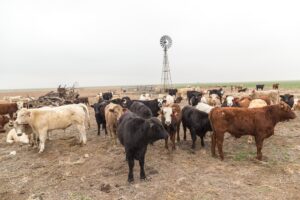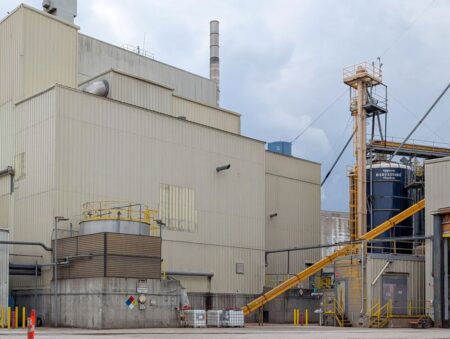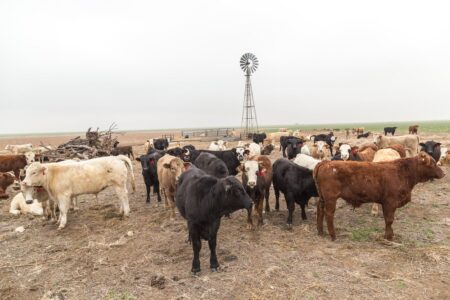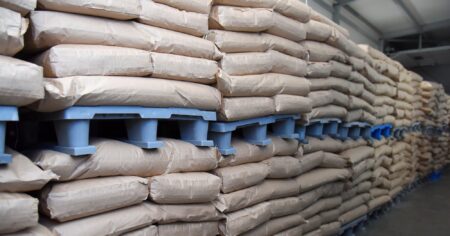By Cami Koons
Iowa Attorney General Brenna Bird sent a letter to federal regulators Thursday urging an investigation into refineries that receive exemptions for renewable fuel blending standards.
Bird, who was joined by attorneys general from Nebraska and South Dakota in the letter, said some of the small refineries that are eligible for renewable fuel exemptions are “manipulating” the program and feigning they face “disproportionate economic harm” while publicly telling investors they are “financially thriving.”
“The possibility that refineries are gaming the system to receive government handouts when they don’t need them hurts Iowa farmers,” Bird said in a statement. “They should be investigated by the federal government to ensure that all refiners are following the rules.”
Each year, the U.S. Environmental Protection Agency sets the Renewable Fuel Standard which dictates a volume of renewable fuels that must be blended with, or must replace fossil fuels used for transportation, home heating and jet fuel.
Fuel refiners and importers satisfy these standards by either blending renewable fuels, like ethanol or biodiesel, into their products or by purchasing credits to offset the gas they produce.
Under the same program, EPA allows refineries that handle less than 75,000 barrels of crude oil input each day to apply for Small Refinery Exemptions. If the refinery shows it would experience “disproportionate economic hardship,” it can be exempted from complying with the Renewable Fuel Standard.
Bird wrote in the letter that some refineries are “intentionally lowering” their production rates to meet the 75,000 barrel per day minimum and remain eligible for the exemptions.
“In other words, certain refineries are producing less gasoline, diesel, and jet fuel to enable them to ask for a government handout,” the attorneys general wrote in the letter. “That is not only contrary to the spirit of the (Renewable Fuel Standard) and (Small Refinery Exemption) programs, but it is also expressly against President Trump’s clear policy of unleashing American energy.”
Refineries also, in an action the attorneys general noted was “even more concerning,” have “misleading representations” about the disproportionate economic hardships in their businesses.
The small refineries can request extensions to their exemptions from the EPA with documents that demonstrate the refinery’s economic hardships.
In August, EPA acted on a “backlog” of SRE petitions and approved 140 full and partial exemptions, while denying 28 petitions.
A news release on the decision said EPA was “getting the SRE program back on track with an approach that recognizes some small refineries are impacted more significantly than others and that EPA’s relief should reflect those differences.”
EPA also said it would provide updated information on how it plans for SREs in the future and said it would “seek to balance” the Renewable Fuel Standard goals to support renewable fuels, while “taking into account economic impacts.”
The attorneys general allege some of the refineries that were granted exemptions by EPA had “strong financial performance and competitive positioning” during the same time they were meant to be suffering “disproportionate economic hardship.”
“Both strong economic results and disproportionate economic hardship cannot coexist,” the letter said, following examples in public filings and quarterly reports where several refineries had positive reports.
The letter, which was addressed to EPA Administrator Lee Zeldin, U.S. Attorney General Pamela Bondi, U.S. Secretary of Energy Christopher Wright and U.S. Securities and Exchange Commission Chairman Paul Atkins, asks for a “cross-government” confirmation of statements made by refineries seeking the exemptions.
For the renewable fuel industry, the exemptions mean fewer refineries are required to purchase renewable fuels, or their credits.
Monte Shaw, executive director of the Iowa Renewable Fuels Association, applauded Bird for leading the letter and efforts to bring the “potentially illegal situation to light.”
“In a time when crop prices are low and increased biofuels usage is a key solution, it is deeply troubling to see what appears to be an attempt by some oil refiners to game the system and avoid their legal requirements under the RFS,” Shaw said in a statement.
Iowa Capital Dispatch is part of States Newsroom, a network of news bureaus supported by grants and a coalition of donors as a 501c(3) public charity. Iowa Capital Dispatch maintains editorial independence. Contact Editor Kathie Obradovich for questions: [email protected]. Follow Iowa Capital Dispatch on Facebook and Twitter.












